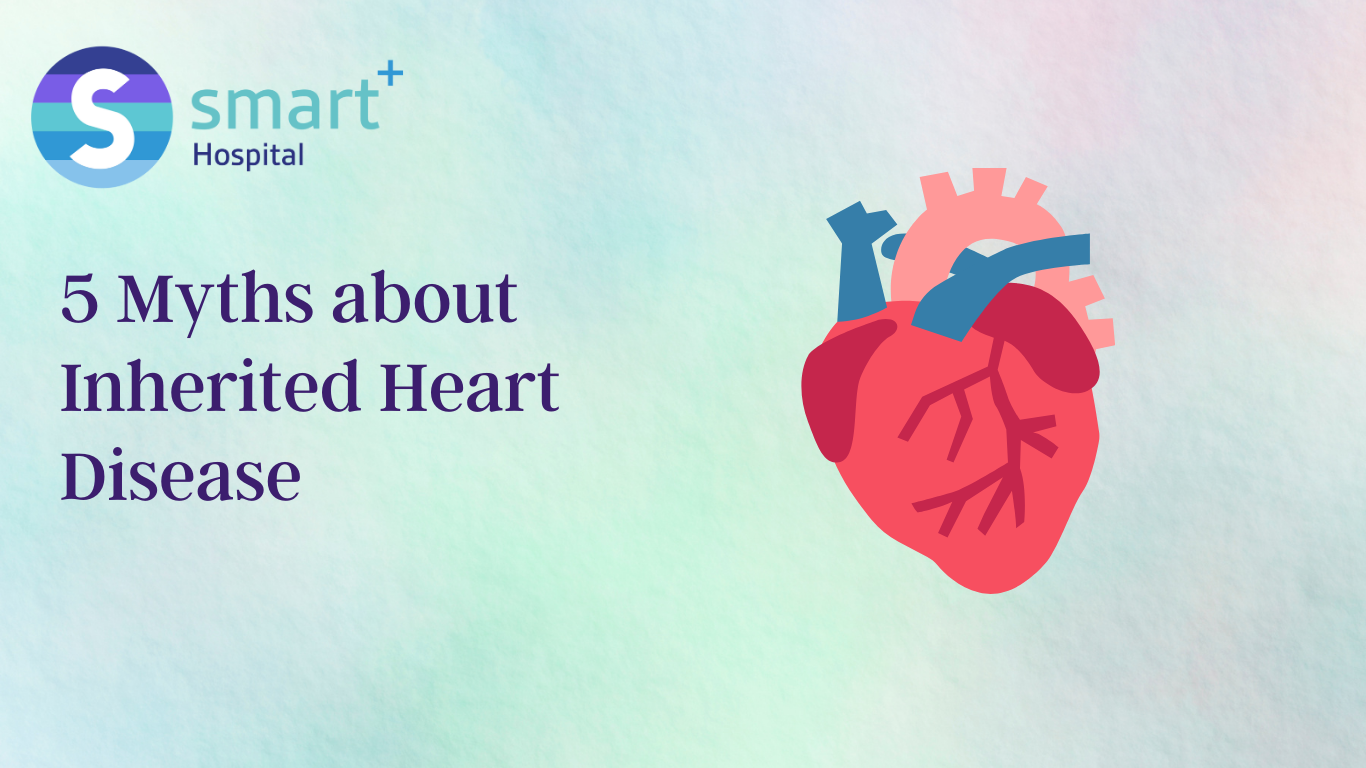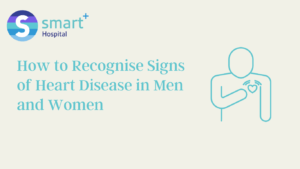Misconceptions and myths have always surrounded inherited heart diseases. Consequently, many individuals make ill-informed decisions about their health based on half-truths or outright falsehoods.
In this article, we’ll debunk five common myths surrounding inherited heart diseases to provide clarity and accurate knowledge.
Types of Inherited Heart Disease
There are various types of inherited heart disease, some mentioned below.
1. Cardiomyopathy
A condition when a heart muscle makes it harder for the heart to pump blood. There are different types of cardiomyopathy, such as hypertrophic, dilated, and arrhythmogenic right ventricular cardiomyopathy.
2. Arrhythmia
An abnormal heart rhythm can cause the heart to beat too fast, too slow, or irregularly. Some arrhythmias are caused by genetic disorders that affect the electrical signals in the heart, such as long QT syndrome, Brugada syndrome, and catecholaminergic polymorphic ventricular tachycardia.
3. Cardiac Amyloidosis
A condition where abnormal protein deposits (amyloid) build up in the heart and interfere with its function. Some forms of cardiac amyloidosis are inherited from a parent who carries a faulty gene that produces the amyloid protein.
4. Marfan Syndrome
It is a disorder that affects the connective tissue that supports various parts of the body, including the heart. People with Marfan syndrome may have problems with their heart valves, aorta (the main artery that carries blood from the heart), or other blood vessels.
5. Cardiac tumours
Cardiac tumors are abnormal growths of tissue in or on the heart. Some cardiac tumors are benign (noncancerous), while others are malignant (cancerous).
Moreover, some cardiac tumors are inherited from a parent with a genetic mutation that increases the risk of developing them.
5 Myths about Inherited Heart Disease
1. Myth: I’m Not at Risk for an Inherited Heart Disease
Inherited heart disease can skip generations. Just because your parents or siblings don’t show symptoms doesn’t mean you’re completely out of the woods.
It’s possible for genes carrying the risk of heart disease to remain dormant for a generation or two and then become active in subsequent ones.
2. Myth: Inherited Heart Disease Only Affects the Elderly
While it’s true that heart disease is more prevalent in older individuals, inherited forms can manifest at any age.
Some conditions, such as hypertrophic cardiomyopathy, can even show symptoms in young adults or teenagers. You must be aware of your family history and consult a doctor if you suspect you might be at risk.
3. Myth: A Healthy Lifestyle Completely Eliminates My Risk
While a healthy lifestyle comprising a balanced diet, regular exercise, and avoiding smoking can significantly reduce the risk of heart disease, it cannot eliminate the risk, especially if genetically predisposed.
This doesn’t mean that those at risk should not pursue a healthy lifestyle; it merely stresses the importance of regular check-ups and being aware of one’s family history.
4. Myth: Only Major Heart Problems are Hereditary
Several inherited conditions may not seem severe on the surface but can lead to significant complications later.
Arrhythmias, cholesterol abnormalities, and even some valve conditions can be passed down genetically. It’s not just the “major” diseases, like coronary artery disease, that one should be concerned about.
5. Myth: Genetic Testing Will Confirm If I Have an Inherited Heart Disease
While genetic testing is potent in identifying potential risks, it can sometimes be more conclusive. Some genetic mutations related to heart diseases remain unidentified.
It’s always best to combine genetic testing with regular medical evaluations for a comprehensive assessment of one’s heart health.
The Science Behind Inherited Heart Diseases
Genetic Mutations: These are changes in DNA that can lead to inherited heart conditions. They can be passed down through generations.
Genetic Testing: A way to identify if you carry certain mutations. However, not all mutations have been discovered, so it’s not foolproof.
Regular Screening: Even if you believe you’re at low risk, regular screenings can detect potential problems early on. Echocardiograms, electrocardiograms, and stress tests are common tools for assessing heart health.
Symptoms of inherited heart disease can range from mild to severe, but some individuals may remain asymptomatic throughout their lives.
Lifestyle and Genetic Predisposition: Your lifestyle and genetics play tandem roles. While you can’t change your genes, leading a healthy lifestyle can greatly reduce potential risks and improve overall heart health.
Conclusion
Inherited heart diseases shouldn’t be viewed through the lens of myths and misconceptions. Individuals can lead healthy, informed lives by understanding the truths behind these conditions and taking proactive steps.
Awareness is the first step to action, so always prioritize knowledge and regular medical evaluations.
FAQs
1. What is Inherited Heart Disease?
Inherited Heart Disease refers to heart conditions passed down through genes. These conditions can affect the heart’s structure, rhythm, or overall function.
2. Can a healthy lifestyle prevent Inherited Heart Disease?
A healthy lifestyle can reduce the risk of heart disease, but regular medical check-ups and genetic testing are crucial if there’s a family history.
3. Are all heart conditions genetic?
No, not all heart conditions are genetic. Some heart problems are caused by lifestyle choices, infections, or other medical conditions. However, a family history of heart problems increases the likelihood of a genetic component.
4. Can inherited heart disease only affect older people?
No, Inherited Heart Disease can affect individuals of all ages, including children and young adults.
5. Is genetic testing necessary if no one in my family has heart problems?
Yes, genetic testing can still be beneficial. Some genetic heart conditions can be carried unknowingly by parents and then passed on to their children without displaying symptoms.
6. Can a person with inherited heart disease lead a normal life?
With proper management, many individuals with Inherited Heart Disease can lead fulfilling lives. Following a doctor’s guidance, taking prescribed medications, and making necessary lifestyle adjustments are key to maintaining heart health.
7. Can stress trigger Inherited Heart Disease symptoms?
Stress might not directly cause Inherited Heart Disease symptoms but can exacerbate existing conditions. Managing stress through relaxation techniques and a support network can improve heart health.
10. Is surgery the only treatment option for Inherited Heart Disease?
Surgery might be necessary for certain cases, but treatment approaches vary. Medications, lifestyle modifications, and medical procedures like pacemaker implantation or catheter ablation can also be crucial in managing these conditions effectively.




